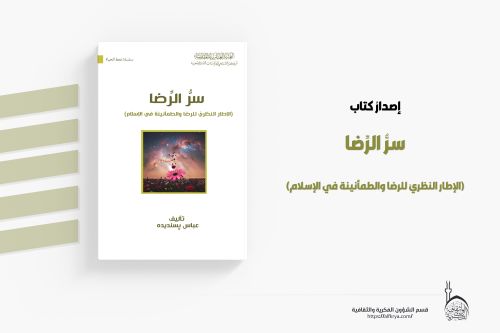

Grammar


Tenses


Present

Present Simple

Present Continuous

Present Perfect

Present Perfect Continuous


Past

Past Continuous

Past Perfect

Past Perfect Continuous

Past Simple


Future

Future Simple

Future Continuous

Future Perfect

Future Perfect Continuous

Passive and Active


Parts Of Speech


Nouns

Countable and uncountable nouns

Verbal nouns

Singular and Plural nouns

Proper nouns

Nouns gender

Nouns definition

Concrete nouns

Abstract nouns

Common nouns

Collective nouns

Definition Of Nouns


Verbs

Stative and dynamic verbs

Finite and nonfinite verbs

To be verbs

Transitive and intransitive verbs

Auxiliary verbs

Modal verbs

Regular and irregular verbs

Action verbs


Adverbs

Relative adverbs

Interrogative adverbs

Adverbs of time

Adverbs of place

Adverbs of reason

Adverbs of quantity

Adverbs of manner

Adverbs of frequency

Adverbs of affirmation


Adjectives

Quantitative adjective

Proper adjective

Possessive adjective

Numeral adjective

Interrogative adjective

Distributive adjective

Descriptive adjective

Demonstrative adjective


Pronouns

Subject pronoun

Relative pronoun

Reflexive pronoun

Reciprocal pronoun

Possessive pronoun

Personal pronoun

Interrogative pronoun

Indefinite pronoun

Emphatic pronoun

Distributive pronoun

Demonstrative pronoun


Pre Position


Preposition by function

Time preposition

Reason preposition

Possession preposition

Place preposition

Phrases preposition

Origin preposition

Measure preposition

Direction preposition

Contrast preposition

Agent preposition


Preposition by construction

Simple preposition

Phrase preposition

Double preposition

Compound preposition


Conjunctions

Subordinating conjunction

Correlative conjunction

Coordinating conjunction

Conjunctive adverbs


Interjections

Express calling interjection


Grammar Rules

Preference

Requests and offers

wishes

Be used to

Some and any

Could have done

Describing people

Giving advices

Possession

Comparative and superlative

Giving Reason

Making Suggestions

Apologizing

Forming questions

Since and for

Directions

Obligation

Adverbials

invitation

Articles

Imaginary condition

Zero conditional

First conditional

Second conditional

Third conditional

Reported speech


Linguistics

Phonetics

Phonology


Semantics


Pragmatics

Linguistics fields

Syntax

Morphology

Semantics

pragmatics

History

Writing

Grammar

Phonetics and Phonology

Semiotics


Reading Comprehension

Elementary

Intermediate

Advanced


Teaching Methods

Teaching Strategies
The assessment task
المؤلف:
Carmela Briguglio
المصدر:
Enhancing Teaching and Learning through Assessment
الجزء والصفحة:
P18-C2
2025-05-27
80
The assessment task
Students were given a sheet with the information and instructions shown below. As can be seen, students were asked to choose one topic, but if they could not write half a page on that, they could then choose another topic as well.
Information Systems 100 Writing Task
Instructions to students
Please write at least half a page on one of the following topics. If you have trouble writing enough, you may choose another topic as well. Please use the reverse of this sheet if you wish to write more.
1. Describe your past experiences with software (what have you used, in what ways, how much, describe your expertise).
2. What do you hope to learn in IS100?
3. What do you see as challenges for you in IS100 and how do you think you can meet those challenges?
4. What challenges do you see in general for you undertaking your degree at Curtin and how do you think you can rise to those challenges?
Legal Framework 100 writing task
Instructions to students
Please write at least half a page on one of the following topics. If you have trouble writing enough, you may choose another topic as well. Please use the reverse of this sheet if you wish to write more.
1. What do you already know about law?
2. How do you see your study of law fitting in with your Curtin degree?
3. What difficulties might you face in undertaking your degree at Curtin?
For the purpose of eliciting a piece of writing which could be allocated into one of the bands below, most topics worked quite well except for topic 1 in the Information Systems task. These topics produced opportunity and scope for complex sentences and indeed for expressing more complex thoughts. Topic 1, on the other hand, tended to be selected by weaker students and generally produced simple sentences with lots of lists. Almost all students managed to write at least half a page.















 قسم الشؤون الفكرية يصدر مجموعة قصصية بعنوان (قلوب بلا مأوى)
قسم الشؤون الفكرية يصدر مجموعة قصصية بعنوان (قلوب بلا مأوى) قسم الشؤون الفكرية يصدر مجموعة قصصية بعنوان (قلوب بلا مأوى)
قسم الشؤون الفكرية يصدر مجموعة قصصية بعنوان (قلوب بلا مأوى) قسم الشؤون الفكرية يصدر كتاب (سر الرضا) ضمن سلسلة (نمط الحياة)
قسم الشؤون الفكرية يصدر كتاب (سر الرضا) ضمن سلسلة (نمط الحياة)

















